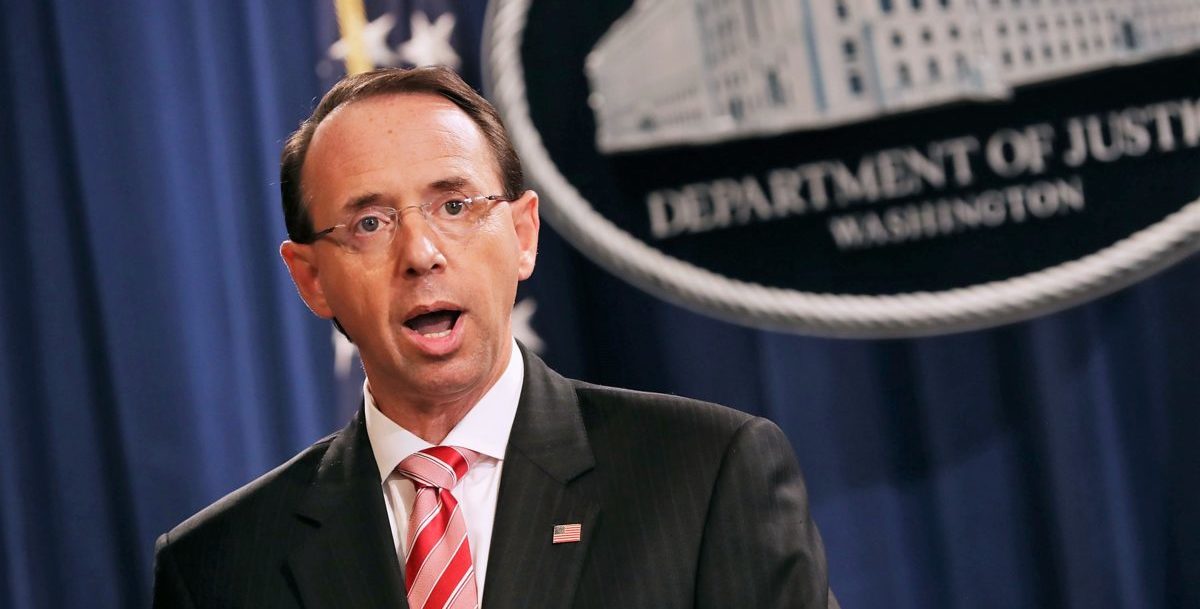
Former Deputy Attorney General Rod Rosenstein, the Department of Justice official who appointed Robert Mueller as special counsel, also played a prominent role in editing an unseen Office of Legal Counsel (OLC) memo that laid out the DOJ’s legal rationale against charging President Donald Trump with obstruction.
Heavily redacted emails obtained by BuzzFeed News’s Jason Leopold show the who, when and some of the what of March 24, which is the day that Attorney General Bill Barr sent a four-page letter to Congress outlining—to Mueller’s dismay—the “principal conclusions” of the Mueller Report weeks before it was released to the public. A federal judge would later call Barr’s summary a distortion. But the emails actually pertain to a “memo” that was at least 7 pages long, not Barr’s 4-page “letter.”
On March 24, 2019 at 1:34 a.m. Rosenstein sent proposed edits to Assistant Attorney General for OLC Steven Engel, who has since been rewarded with a place on Trump’s revised potential Supreme Court nominee list.
Notice the subject line “Re: draft memo.” Rosenstein sent edits from his phone to pages 4, 5, 6, and 7 of the memo. All of those edits were redacted.
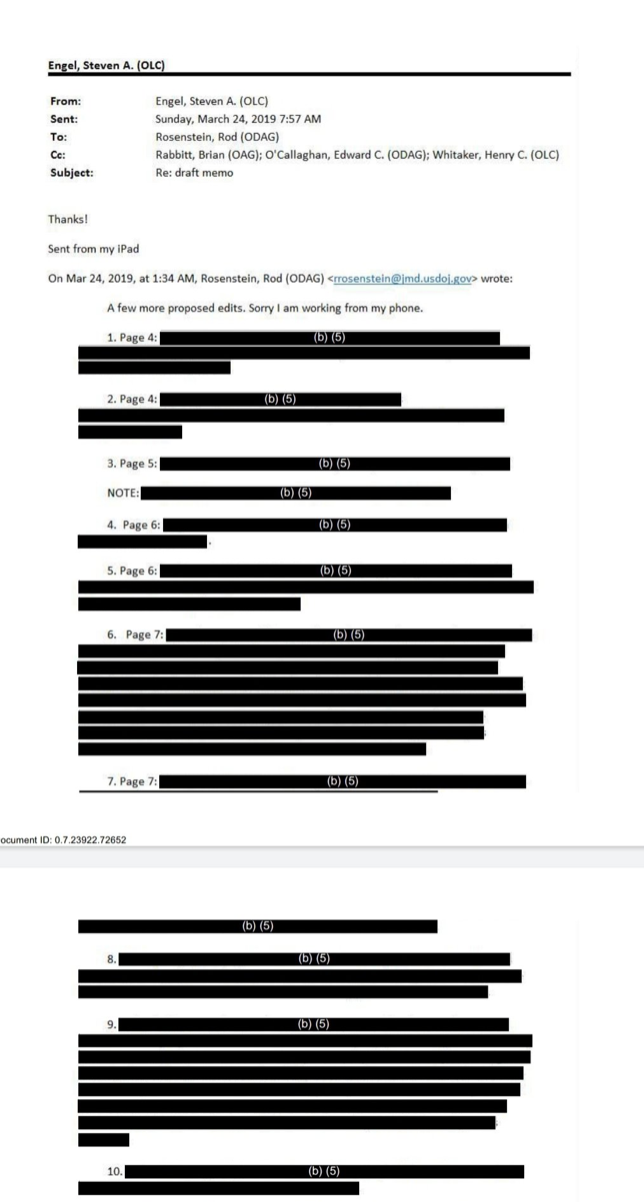
“Thanks!” Engel responded at 7:57 a.m.
Later that day, at 1:01 p.m. to be exact, Engel sent a “new paragraph” to Brian Rabbitt, who was at that time Barr’s chief of staff.
“For the memo, not the letter, correct?” Rabbitt responded two minutes later.
“Correct,” Engel replied seven minutes after that.
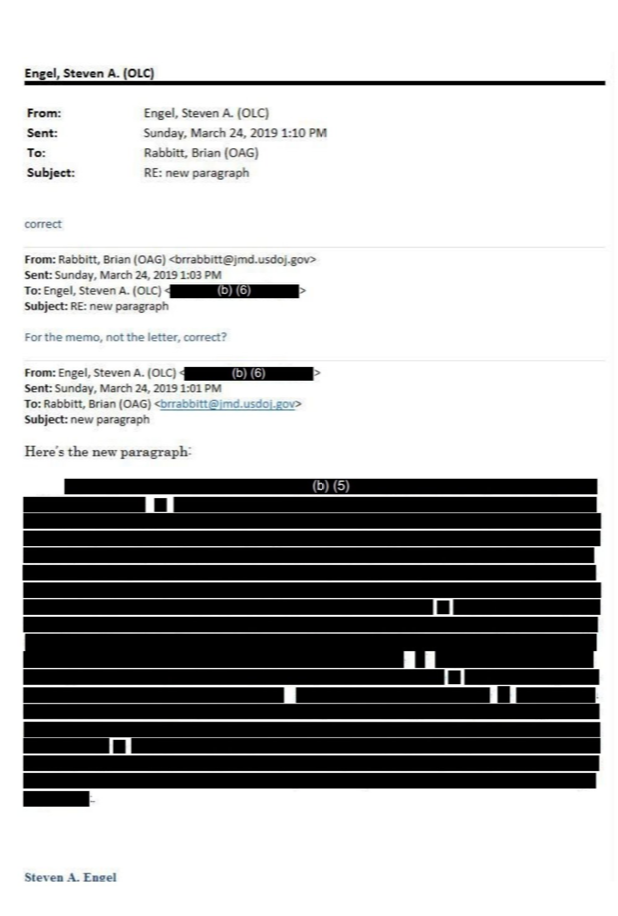
Watchdog groups have tried and thus far failed to obtain a complete copy of the legal justification OLC relied upon in reaching the conclusion that there was insufficient evidence to say Trump committed obstruction of justice, only releasing a heavily redacted version of the memo amid protracted litigation.
The memo’s existence was revealed in response to a Freedom of Information Act (FOIA) request filed by government watchdog organization Citizens for Responsibility and Ethics in Washington (CREW). The group had initially filed a FOIA request for records “pertaining to the views OLC provided Attorney General William Barr on whether the evidence developed by Special Counsel Robert Mueller is sufficient to establish that the President committed an obstruction-of-justice offense.”
The DOJ initially rejected CREW’s request arguing that the documents were “not a matter in which there exist possible questions about the government’s integrity that affect public confidence,” resulting in a lawsuit that eventually produced more than 250 pages of internal White House documents.
But in a letter accompanying the redacted memo from an attorney in the DOJ’s Office for Information Policy, the office stated that the OLC’s legal reasoning was being withheld based on a widely used exemption to FOIA. That exemption states that documents are protected from the law if they “would not be available by law to a party other than an agency in litigation with the agency, provided that the deliberative process privilege shall not apply to records created 25 years or more before the date on which the records were requested.”
In June 2020, DOJ made reference to the OLC memo, saying it was nine pages long.
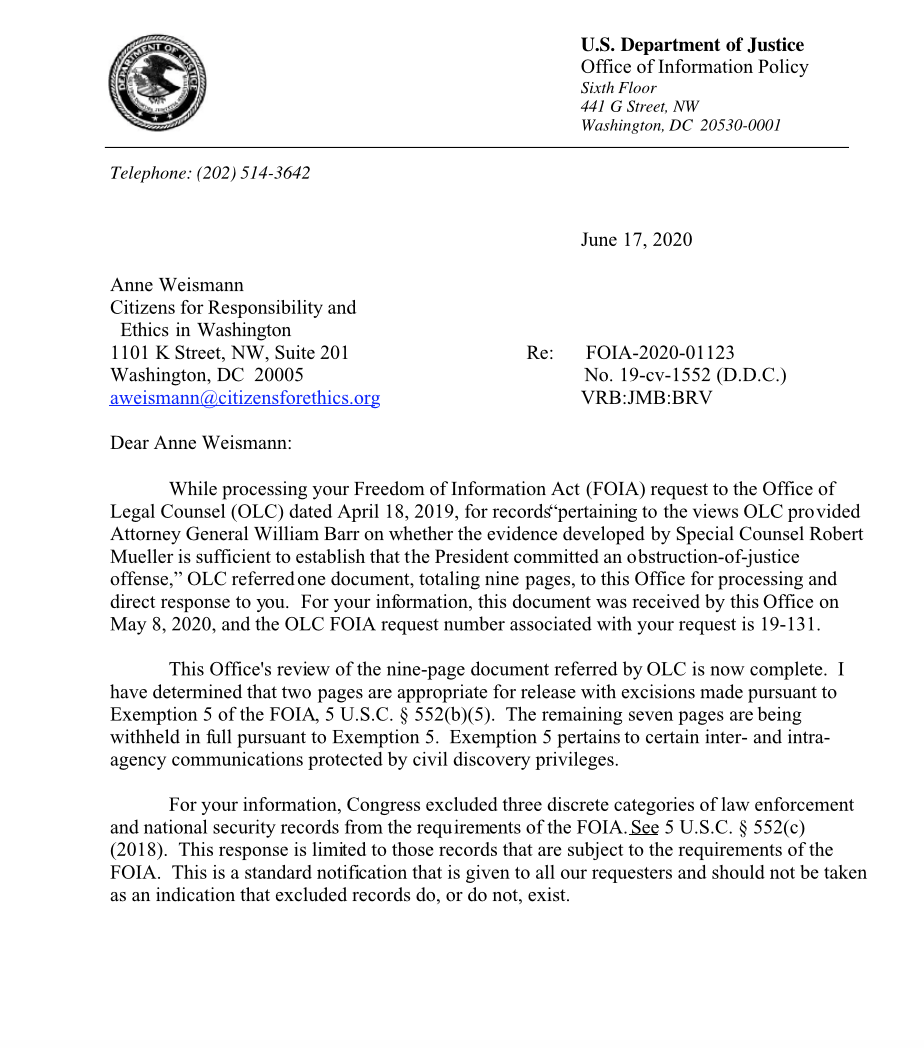
Additional emails also show Rosenstein’s involvement on April 17, 2019 in editing Barr’s statement prior to the release of the Mueller Report. The Mueller Report was released on April 18, 2019.
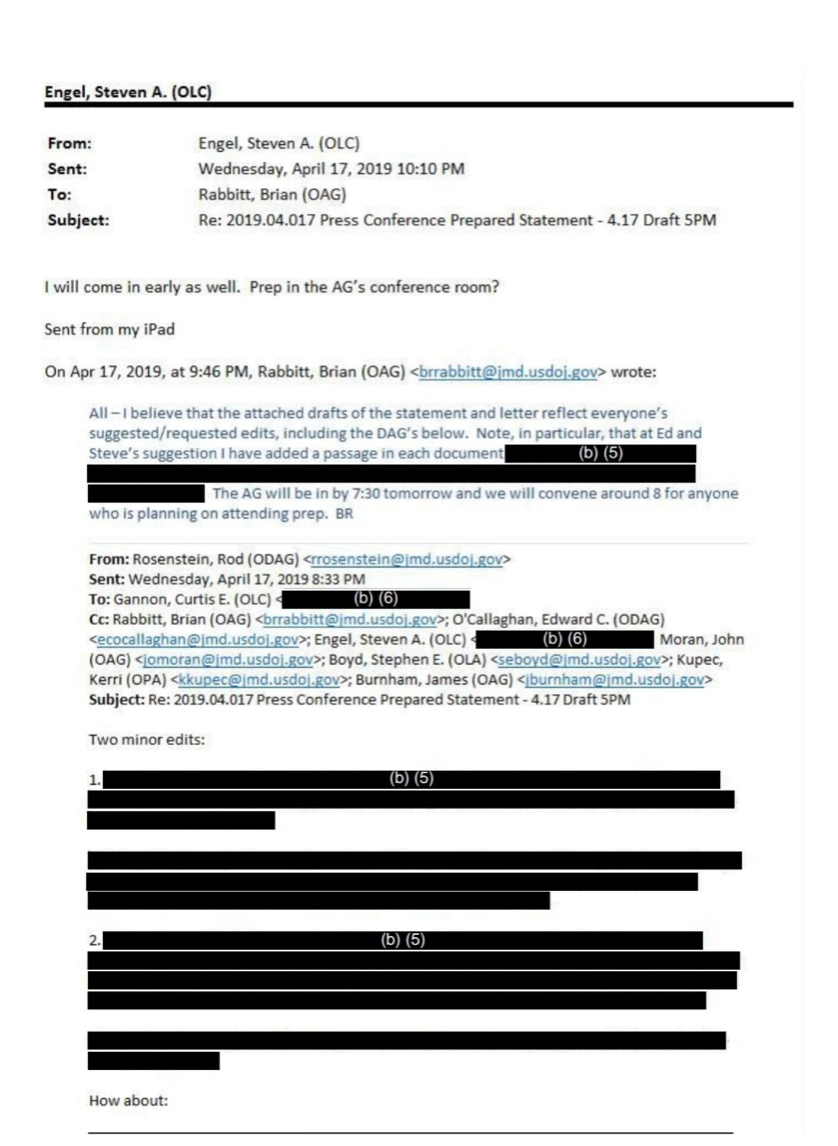
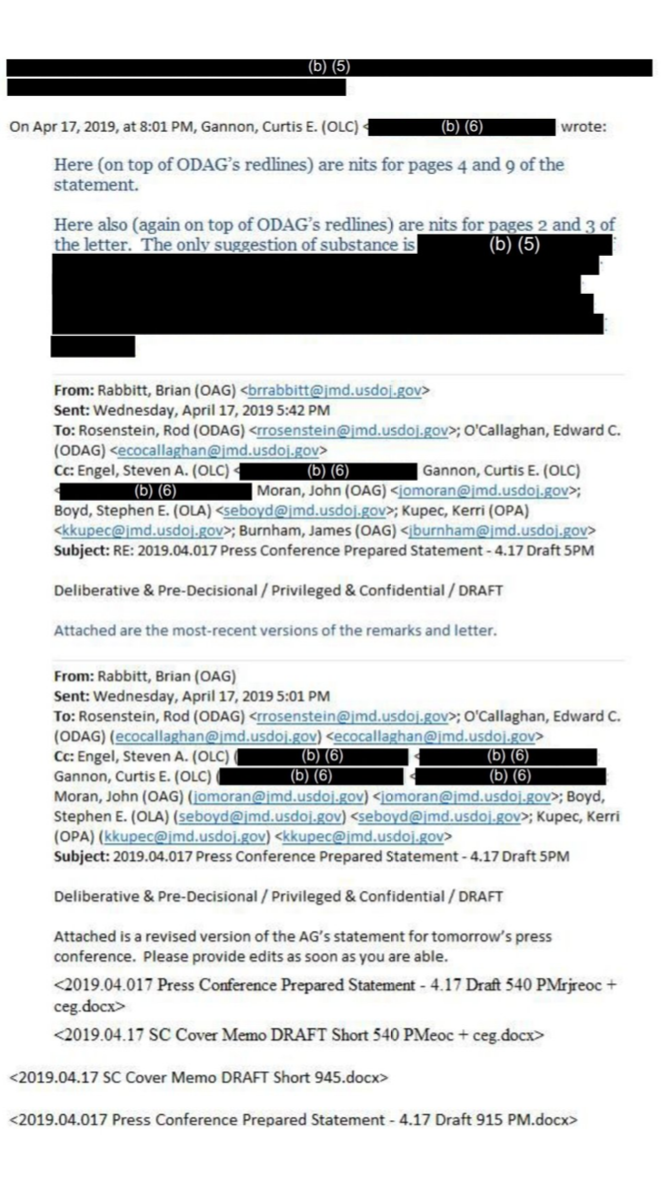
Note the Rabbitt email from April 17, 2019 immediately above, including an attachment to a memo that he called “deliberative & pre-decisional.” CREW argued as recently as September 2, 2020 that the secret charging decision memo was neither deliberative nor predecisional (see more on case history here):
But the premise for DOJ’s invocation of the deliberative process and attorney client privileges to justify the withholdings is fundamentally flawed. OLC created the documents at issue not to provide legal advice to aid Attorney General Barr in deciding whether to bring a prosecution—a decision that the Attorney General had delegated to Special Counsel Mueller. Instead, OLC’s memorandum served to help the Attorney General falsely spin the findings of Special Counsel Mueller into a vindication of President Trump and to sow doubt about and undermine the findings of the Special Counsel. The FOIA offers no protection for those efforts, which are not protected by either the deliberative process privilege or the attorney client privilege and instead reflect the kind of misconduct for which the FOIA was intended to provide an avenue of public access.
Jerry Lambe contributed to this report.
[Image via Chip Somodevilla/Getty Images]